Have you just been to an interview? Congratulations! Getting there takes a lot of work, from crafting the perfect application to then running it through a resume checker—and that’s only the peak of the job-hunting iceberg.
You might feel tempted to rest on your laurels and await a positive response, but it’s too early for that. Acing the interview is key to getting hired, but that’s not all there is to it. Sending a thank-you email after the interview can boost your chances of getting hired.
But how do you write an interview follow-up email? Our guide below will tell you everything you need to know!
Why Should You Send a Follow-up Email after the Interview?
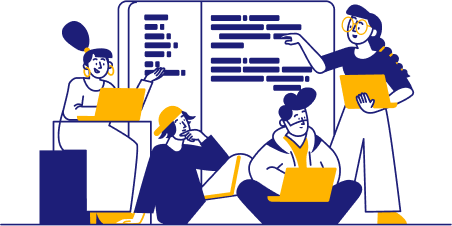
There are practically no downsides to sending a follow-up email after your interview, and even though many recruiters won’t tell you this outright, it’s actually expected in some industries!
The more competitive the role, the more likely it is that the recruiter will have a keen eye for extra signs of how much you care about this job, and that’s exactly what a follow-up email is used for.
Let’s go over the ins and outs of sending a thank you email so that you know exactly how to follow up after an interview.

Importance of follow-up emails
If you’ve just had a successful interview, you may want to sit back, relax, and wait for them to get back to you. After all, you did great, and maybe they won’t want to get more emails than they already receive on a daily basis?
Rest assured: they will, and sending that thank you email can give you a huge edge over other applicants who choose not to send one.
What’s so good about these emails? Here are just a few points.
- Appreciation. You’ve thanked the interviewer (or interview panel) in person, but sending a thank you note reaffirms that you’re respectful of their time and grateful for the opportunity.
- Interest. You came to the interview, so of course, the recruiter knows that you’re interested—but it never hurts to remind them.
- Qualifications. You can spare a line or two in your email to remind the interviewer just why you’re so great for the job.
- They won’t forget you! If the interviewer met with several people during this recruitment round, your thank you note will make sure that you’re staying at the top of their mind—and their inbox!
With all these benefits, sending an email is definitely a must.

Timing your follow-up
Timing is crucial when you’re sending a follow-up email, but different rules apply to different emails here, so it’s not as straightforward as “do it as soon as possible.” (When is anything ever straightforward when looking for a job? Thankfully, tools like resume builders make our lives easier.)
For starters, the initial follow-up email needs to take place right after your interview. We don’t mean that you need to draft it pre-interview and then hit Send as soon as you’re out the door, but sending it within 24 hours, or one business day, of the interview, is ideal.
Your next follow-up email should follow within two weeks of your interview, provided you don’t hear back after your initial thank you note. However, if the interviewer gave you a time window for when they might get back to you, that’s your guideline, so that two-week rule no longer applies. Instead, wait until that time passes, and then send your email two days later.
Lastly, there’s a different kind of follow-up email—one you send when you haven’t heard back for a while, or when you already know that you didn’t get the job. This is a “stay in touch” kind of email that you’ll send a month after the interview.

Professionalism and etiquette
Nailing the tone is hard, no matter if you’re sending a job application email or following up after an interview. There’s no one-size-fits-all advice here, as you’ll need to adapt to company standards and culture. However, it’s important to keep it professional.
The follow-up email is a little easier than previous correspondence—you’ve already met the interviewer and may have established a rapport. If the interview was fairly casual, you can maintain a friendly, open tone in your email. It’s even a good idea to mention something more personal they may have said during their chat, as that shows you’re paying attention!
If not, it’s best to keep it professional and focus on expressing your gratitude, staying polite, and keeping things concise. This isn’t a second cover letter. It’s just a reminder as to why you’re a great fit.

Common mistakes to avoid
Much like any other job-related correspondence, follow-up emails are a bit of a minefield. Saying the wrong thing or forgetting an unfortunate typo can leave a worse impression, and that’s the last thing you want after a successful interview.
To succeed, avoid these mistakes:
- Don’t be pushy. Waiting for that “you’re hired” email is excruciating, but the last thing you want is to come off as desperate or pushy.
- Keep it concise. The interview was your opportunity to elaborate on everything related to you, your work experience, and even your hobbies and interests. The follow-up email is just a longer thank-you note and should not go over two paragraphs.
- Make your intentions clear. Don’t be vague as to why you’re emailing the interviewer. Make it clear that you just wanted to say thank you and reaffirm that you’re interested in the job and that think you’re a great fit for the role.
- Proofread, proofread, proofread! Write the email, take a break, then come back to it and edit it to perfection.
How to Write a Follow-up Email after an Interview
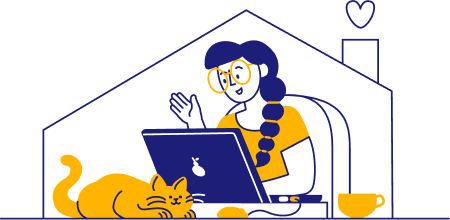
We’ve gone over the basic dos and don’ts, but how do you actually write a follow-up email? With your resume, you probably used online resume examples or ready-made resume templates to help you get started. But it’s different with a follow-up email.
No stress—we’ve got you covered. Check out our expert tips to make sure that your email is as perfect as can be.

Crafting a compelling subject line
The subject line is something many applicants get stuck on, but that doesn’t have to be you. In fact, there are a few simple, universally accepted subject lines that work well for a post-interview thank-you email.
In general, you want your subject to be to the point and self-explanatory. Don’t let the recruiter scratch their head and wonder what it’s all about before reading your email. Keep it concise.
Here are our suggestions for the perfect subject line for your first follow-up email:
- Reply to your previous email thread, if you have one
- “Thank you for your time”
- “Thank you for the interview opportunity”
- “Follow-up on [company name] interview”
- “Thank you for meeting with me”
It’s really that simple.
What about your second follow-up, though, if you don’t hear back? Here are some options:
- Reply to your previous email thread, if you have one
- “Checking in about the [position] role”
- “Follow-up on [position] interview”
- “RE: [Position] interview – Looking for an update”
- “Following up on [position]”
And, lastly, if you’re checking in just to network and are no longer hoping to get this job, you can use one of these:
- “Staying in touch RE: [position] role at [company]”
- “Thank you for the opportunity – let’s stay in touch”
- “Interested in future opportunities”

Opening with a polite greeting
We always stress the importance of offering a personalized greeting in all job-related correspondence. Using “Dear Sir or Madam” is outdated and doesn’t leave a great impression, and that’s when you’re just sending over your resume.
Using that after an interview, when you’ve already met the person and know their first and last name, is a surefire way to sour their initial impression of you.
Depending on the tone of your interview, you may need to opt for something more formal or casual. If you and the recruiter built up quite a rapport and the interview was friendly, it’s perfectly fine to address them by their first name, such as “Dear Marlene.”
However, if the interview was more on the formal side, or you were met with a whole panel of interviewers, address the lead interviewer and use either their first and last name or just their last name. As an example, you could say, “Dear Mr. Paul Livingston,” or just “Dear Mr. Livingston.”

Expressing gratitude
With the greeting out of the door, your next most important step is to express gratitude. A little courtesy goes a long way, and acknowledging that you’re grateful for the opportunity to be interviewed, as well as for the chance to learn more about the company and the role.
Expressing your gratitude is something that you do throughout the email, but the first time you do it should be in the very first line after the greeting.
Your quick thank-you note should include the following:
- A word of gratitude for their time
- A mention of when the interview was
- The company name and position
This single line will make up the first part of your first paragraph. It can look like this: “Thank you so much for your time and for giving me the chance to learn more about the role of a marketing executive at Pandora.”

Recapping the interview
Next, it’s a good idea to briefly recap the interview and reiterate your qualifications and how they align with the company. Just be careful not to fall into the trap of basically writing a second cover letter—there’s really no need. (Psst: remember that you can use a cover letter generator to skip that step entirely.)
Within the first paragraph, mention something about the interview that shows you were paying attention. For instance, if the recruiter talked about the company’s plans to expand into a new region, mention that you appreciated the opportunity to learn more about the business and its future plans.
Don’t just say “future plans, though”—in this case, say something along the lines of, “I enjoyed learning more about Pandora and its thrilling expansion plans. This type of competitive environment is exactly what I’m looking for in my dream job.”
Next, you can use one paragraph to review some of the key points from the interview and reaffirm your fit. We’ll discuss that in the section below.

Reaffirming interest and fit
Whether you’re angling for a short follow-up email or a longer message, it’s a good idea to dedicate either a line or a paragraph to the fact that you’re an awesome candidate who should get hired like yesterday.
The way to do this is to tie your resume skills with the things that were discussed at the interview. You now know much more than just the job description. The interviewer gave you in-depth information about the role, so craft a couple of sentences that truly highlight why you’re a great fit.
Make it clear throughout the paragraph that you’re not just listing things off of your resume. Tie your sentences to the contents of the interview, showing that you’ve paid attention.
The ideal paragraph (or two) used for this purpose reaffirms not just your fit, but also your interest. Show the recruiter that this company, as well as its plans, are of great interest to you.
Here’s an example:
Example
“I’m thrilled at the prospect of joining Pandora and leading your team of marketing specialists in the face of the upcoming expansion across the United States. I believe that my prior experience in project management and financial analysis will help ensure that this transition is smooth and beneficial to the company.”
Examples of Follow-up Emails after an Interview
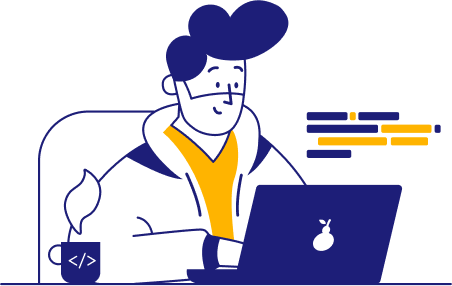
Above, we’ve given you the recipe for writing the perfect follow-up email after an interview—but what should such an email really look like? Don’t worry, you can put your search engine to rest. We’ve got all the examples right here.
Follow-up email after a short interview
Dear Jamilla,
Thank you for the opportunity to discuss the data scientist position at Google. I appreciated learning about the innovative projects your team is working on, especially the development of new machine-learning models to enhance search algorithms and the introduction of personal context to your AI-based systems.
I am excited about the prospect of applying my expertise in data analysis and ML to contribute to these initiatives. I am confident that my background in developing predictive models and my passion for data-driven decision-making would be a valuable asset to your team.
Please let me know if you require any additional information. I look forward to the possibility of contributing to Google’s success. Once again, thanks so much for your time.
Best regards,
Marco Moretti
(555) 123 4567
[email protected]
Follow-up email after a long interview
Dear Ms. Ligocki,
Thank you for taking the time to speak with me about the regional operations manager role at McDonald’s. I appreciated our discussion about the company’s strategic goals, particularly the initiatives to improve operational efficiency and customer satisfaction across the northeastern region. I am thrilled about the possibility of joining McDonald’s and contributing to these efforts.
I especially enjoyed learning more about the challenges in this role, and the goal to increase operational efficiency across over 200 branches spoke to me and aligned well with my experience. I am eager to bring my expertise in budget management and my passion for driving continuous improvement to this role.
Reflecting on our conversation, I am confident that my skills in managing large teams and implementing process optimizations align well with the requirements of the position.
Please let me know if you need any additional information or examples of my previous work. I look forward to the possibility of contributing to McDonald’s success.
Thank you once again for the opportunity.
Best regards,
Olive Johnson
(555) 123 4567
[email protected]
Casual follow-up email
Hi Jessica,
Thank you for meeting with me yesterday to discuss the chef position at Le Bernardin. I hope you had a great time at your pottery class after our meeting—it sounds like a fantastic way to unwind!
I enjoyed our conversation and learning more about the fantastic team you have—it’s no wonder that Le Bernardin is one of NYC’s top-rated restaurants!
I’m very excited about the possibility of bringing my culinary skills and creativity to your outstanding group of chefs. The emphasis on fresh, locally sourced ingredients and innovative dishes really resonates with my approach to cooking.
If you need any additional information or references from my previous roles, please feel free to reach out. I remain exceedingly excited at the prospect of working with you.
Best regards,
Paola Hernandez
(555) 123 4567
[email protected]
Follow-up email after no response
Dear Rachel,
I hope this email finds you well!
I’m checking in to follow up on the event planner role at Salesforce. I greatly enjoyed meeting you and discussing the ins and outs of the position, and I remain immensely excited at the prospect of joining the team.
Please let me know if I might be able to provide any further information at this stage. I look forward to hearing from you.
Best regards,
Neil White
(555) 123 4567
[email protected]
Third follow-up email to stay in touch
Dear Sakshi,
I hope this message finds you well. I wanted to thank you once again for the opportunity to interview for the beauty advisor role at Sephora. Makeup is a lifelong passion for me, and the ability to learn more from someone as experienced as you has been truly transformative.
Although I haven’t heard back yet, I’m very interested in staying connected! Your career journey at Sephora was particularly inspiring, and I would love to learn more about your experiences and any advice you might have for someone looking to grow in this field. Would you be open to a quick call or meeting me for lunch over the next few weeks?
Thank you once again for your time and consideration. Please keep me in mind for future opportunities at Sephora, as I believe that we are a great fit.
Best regards,
Marinel Diaz
(555) 123 4567
[email protected]
Tips for Writing Effective Follow-up Emails
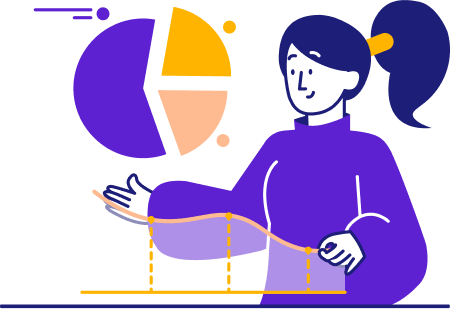
Remember that sending a follow-up email is not just something to do and consider it done. Instead, set out with a clear goal, be it to reaffirm that you’re a good fit or to be polite and friendly.
How to write a follow-up email that’s truly effective? Follow our tips to get the job!

Keep your email concise
Sending a short and sweet follow-up email after an interview is an art in and of itself. You don’t want to go on and on—you just want to get your message across and maintain the reader’s interest throughout.
Depending on the type of email, you might use two to three paragraphs, plus the greeting and the signoff. Generally, less is more, so two paragraphs are the best approach.
For your second follow-up email, keep it to a single longer paragraph and a signoff. It’s possible that the reader may have neglected to get back to you because they were too busy, so it’s a good idea to remain respectful of their time and be concise.

Double-check spelling, grammar, and details
We all hate typos, whether it’s an unfortunate text sent to your mother-in-law or an email to your boss. However, when you’re trying to get a new job, typos are one of your mortal enemies. Since professionalism is the name of the game, things like misspellings and poor grammar can have disastrous consequences.
Approach the follow-up letter the same way you do anything else that’s related to your job hunt. Write it carefully, use a spell checker, and then read it carefully, word for word. Next, leave it to sit for an hour or two and come back to it, reading it again with fresh eyes.

Reflect the tone of the company’s culture
You’re post-interview, so you have much more insight into company culture than you did just a couple of days ago. There’s only so much information that can be gathered from a website; what you saw was a peek into the workings of your future company, and now, it’s time to make use of it.
Craft your email to match the company culture. If your interview was super casual and friendly, it’s totally okay to tone it down in your email and be friendly. The most important thing is being attentive and respectful, and that can be done even if you swap the “Best regards” for a “Thanks so much, and have a great day.”
On the other hand, if you were met with a panel of serious interviewers, and the tone was highly formal, stay far away from casual chatter. Keep your email just as formal, if not more, than the interview itself.

Be honest and authentic
Some people attend many interviews before landing that dream job, but don’t fall into the trap of crafting a single follow-up letter and sending it to every interviewer you meet.
This should be a highly personalized message that speaks not just of your newly gained knowledge of the company, but also of who you are as a person. Express yourself the way you did during the interview, picking parts of it that spoke to you the most when you emphasized why you’re a great fit.
Don’t force it. Draw natural parallels between your experience and the company’s needs and express genuine excitement at the position.
FAQs about Follow-up Emails
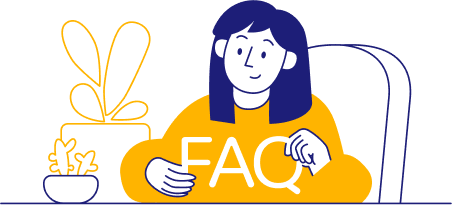
Send your first follow-up email within one business day of the interview. You can either send it on the same day or the next morning.
Advise on the typical timeframe for sending follow-up emails after an interview.
For your first follow-up email, use something simple like “Thank you for your time” or “Thank you for the interview for [position] at [company].” You can also respond to an existing email thread with the recruiter.
You can typically write a slightly shorter follow-up email after a phone interview, provided that it wasn’t a long call. If this was an initial screening, express your eagerness to meet and discuss the role in greater detail.
Yes, it’s a good idea to send a second follow-up email if you don’t get a hiring update. You can do this after two weeks have passed since the day of the interview, or a couple of days after the agreed-upon date when you expected to hear back about the job.
Make sure to thank the interviewer for their time and affirm your interest in the position. Offer to provide any additional information if needed. Discuss a couple of key points that are important to the company and that you believe you’re a great fit for, keeping it highly specific.
It’s not just appropriate—it’s very polite. It shows that you care about the role, and if phrased correctly, tells the interviewer that you care about this particular company and job, not just any job. It also keeps you at the top of their mind.




